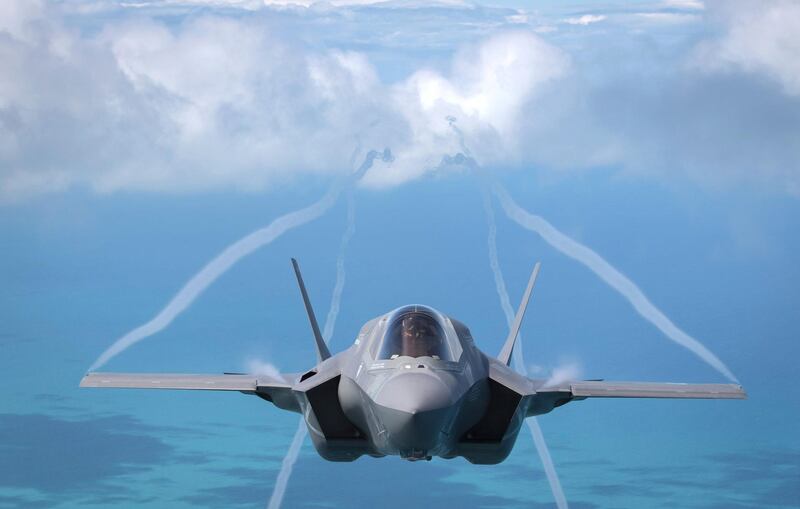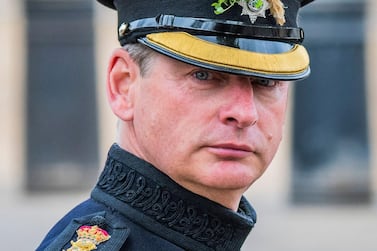When UK Prime Minister Boris Johnson arrives in India this spring he will not only be glowing with delight at his Covid vaccination success but confident that Britain is about reassert itself as a major global security player.
For that to happen, this coming Tuesday will prove a pivotal moment when Mr Johnson's interpretation of ‘Global Britain’ is spelt out with ambitious new goals for the UK as a military, diplomatic and intelligence power.
Mr Johnson hopes to set a fresh course for Britain when he announces the Integrated Review, the biggest strategic shake-up in decades, signalling Britain’s emergence from Brexit and Covid-19.
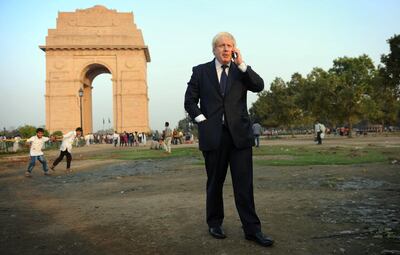
The 100-page document will detail the country’s geopolitical trajectory with a “tilt East” in projecting power and seeking great alliances.
It is clear that the armed forces are going to face their biggest overhaul in decades, with winners and losers.
There is a desire to turn the military into a highly modern and relevant force with drones, artificial intelligence, cyber and space ambitions. The losses will be humans, with machines taking over. The army will shrink from 82,000 to about 70,000 soldiers over the next five years.
With an extra £16 billion ($22bn) already allotted for defence, part of an £80bn four-year equipment plan, the document means a stronger navy and a better-equipped Royal Air Force. The desire for Britain to project itself as a serious military global player is clear in the plans drawn up by John Bew, the prime minister's adviser, and top civil servants.
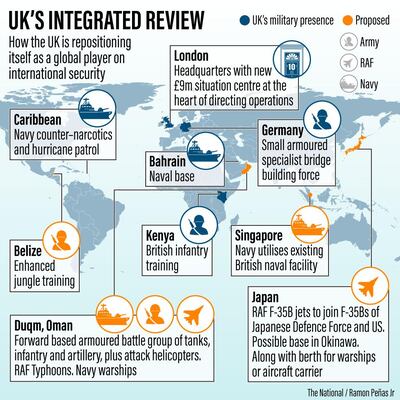
The National has spoken with a former diplomat, a defence analyst and a military commander who all work for London-based think tanks, taking their views on where the review might take Britain.
The review, said Sir Simon Fraser, was an “important moment” in which Britain would set out its international strategy post-Brexit. “I would like a credible expression of a vision that takes a realistic approach to what Britain's capacity is in terms of influencing world events,” said the former permanent secretary to the Foreign Office.
It is the UK’s first opportunity after leaving the EU to showcase an independent national policy with global reach but, he warned, “it has to be backed by realistic choices and policies”.
Prof Michael Clarke, a leading defence expert, said there was likely to be some “assertive language” that will specify Britain’s adversaries. “It'll also talk about the need not to leave too much space in the world for the autocracies just to clean up, which is what has been happening.”
China and Russia will be identified “as the enduring challenge for the next decade or so,” said retired Brig Ben Barry, with Iran and North Korea regarded as regional rather than global challenges. “I also detect an appetite for more deployments, partnerships and international training than we’ve seen over the last five years.”
Indo-Pacific tilt
It is clear that the review will propose a tilt East, zeroing in on China’s attempts to dominate Asia and its view that the South China Sea is home waters rather than an international trading route.
It is almost certain that Britain will send its new aircraft carrier HMS Queen Elizabeth and its accompanying warships to the South China Sea in a key test of the Royal Navy's growing influence and power. But the potential for mishap or misunderstanding cannot be underestimated.
“It will rattle the Chinese and it’s an assertive move,” said Prof Clarke, of the Royal United Services Institute. “With accompanying Japanese, American and South Korean warships it’s going to look like an anti-Chinese demonstration built around what is currently the world’s newest and best aircraft carrier.”
But there is a danger that the carrier’s passage could be seen as symbolic, said Mr Fraser, deputy chairman of the Chatham House think tank. “One of the things that global Britain needs to avoid is symbolism, especially if that isn't backed by the reality of natural force projection.”
He believed the ‘tilt’ should mean Britain aligning itself with Asian democracies to manage the future relationship with China. “Clearly the geopolitical question we're all looking at is how it's going to evolve and whether China can be managed in a way that avoids inevitable competition descending to confrontation and potential conflict.”
Conflict is where Britain’s bluff could be called, said Brig Barry. “If there’s a flare-up with China, Taiwan or on the Korean peninsula, that poses a bit of an awkward question.”
That could be answered by Britain joining the informal ‘Quad’ alliance of Australia, the US, India and Japan. It will almost certainly be something Mr Johnson raises in India, on the first bilateral trade and security visit by a prime minister since Theresa May went to Africa in 2018.
New bases
That could play into a potential Integrated Review proposal for Britain to seek semi-permanent bases around the globe where it can station troops, ships and jets. Okinawa in Japan would be an ideal starting point, given that the Japanese share the same F35B jets as the British and the Americans are there, too.
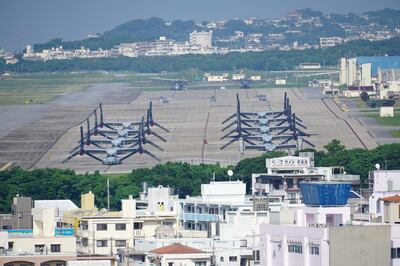
The British naval facility in Singapore and the infantry barracks in Brunei, that houses a Gurkha battalion, could be similarly used to reinforce the Pacific focus. Australia is also keen for a British presence.
But the basing idea has to be backed with concrete plans, said Brig Barry. “If you're going to put stuff out in the Far East it's got to be capable of joining the US and responding to a crisis. It needs to be more than just flag-waving fighters and brave infantry with bayonets – it needs to be capable of combat. And it needs to be able to activate a logistics supply line very quickly in case their bluff is called."
Other bases under consideration, outside the permanent ones such as Cyprus, Bahrain and the Falkland Islands, are understood to include either Pacific or Caribbean islands that could be used for space observation as well as signals intelligence.
There are strong indications that the port and training area of Duqm in southern Oman could become a significant British hub housing an armoured battle group, warships and jets.
Basing in Oman will be part of the refocus on the Middle East, which is likely to follow the US on how it deals with Iran and its force levels in Iraq to combat ISIS. “We’ll stand behind the Americans on the Abraham Accord, on the Iran deal and then the bit we can make a contribution to is more stability in the Gulf,” Mr Fraser.
Nato
With Britain’s relations with Europe at a low following Brexit and vaccine rows, its continental allies will scrutinise how much attention the review will pay to its closest partner.
It is likely that the army will be reduced to one single armoured division to protect Nato, which could be seen as the bare minimum to deter Russian aggression.
“Eastern European members like Poland and the Baltics feel much more threatened by Russia than the UK does,” Brig Barry said. “And some of them have been asking that if there's a crisis with Russia, instead of sending armour will Britain simply send aggressive algorithms instead?”
He argued that Nato should be the priority to deter Russia and reassure Eastern European members. It was therefore vital to assign resources to rebuild the army's conventional warfighting capability.
Prof Clarke agreed that “European security can't be taken for granted any more,” as it had been undermined by former US president Donald Trump’s nonchalance towards Nato.
Mr Fraser believed there was a diplomatic opportunity to build bridges with Europe by reviving collaboration with France and Germany to contain Russia.
“I don't see a positive agenda emanating from Moscow, therefore I see Russia as a problem to be managed at the moment. I do see Russia as a challenge, but I don't see it in the geostrategic league in the same category as China and the United States.”
It is also clear that the powers have “woken up to the importance of the Arctic,” said Prof Clarke, with both the US and the UK likely to concentrate more forces in the High North as the ice cap melts and economic opportunities appear.
Boris Johnson is going to have to work hard to ensure that Global Britain is more than a slogan. That will require deep thought and deeper pockets.
“The reaction will be either: ‘Yes, this is all sensible’ but now you've got to do it and pay for it’,” said Prof Clarke. “Or the other reaction will be: ‘This is pie in the sky and post-imperial aspiration’. A lot will depend on how it's presented and how solid the follow-up looks.”
